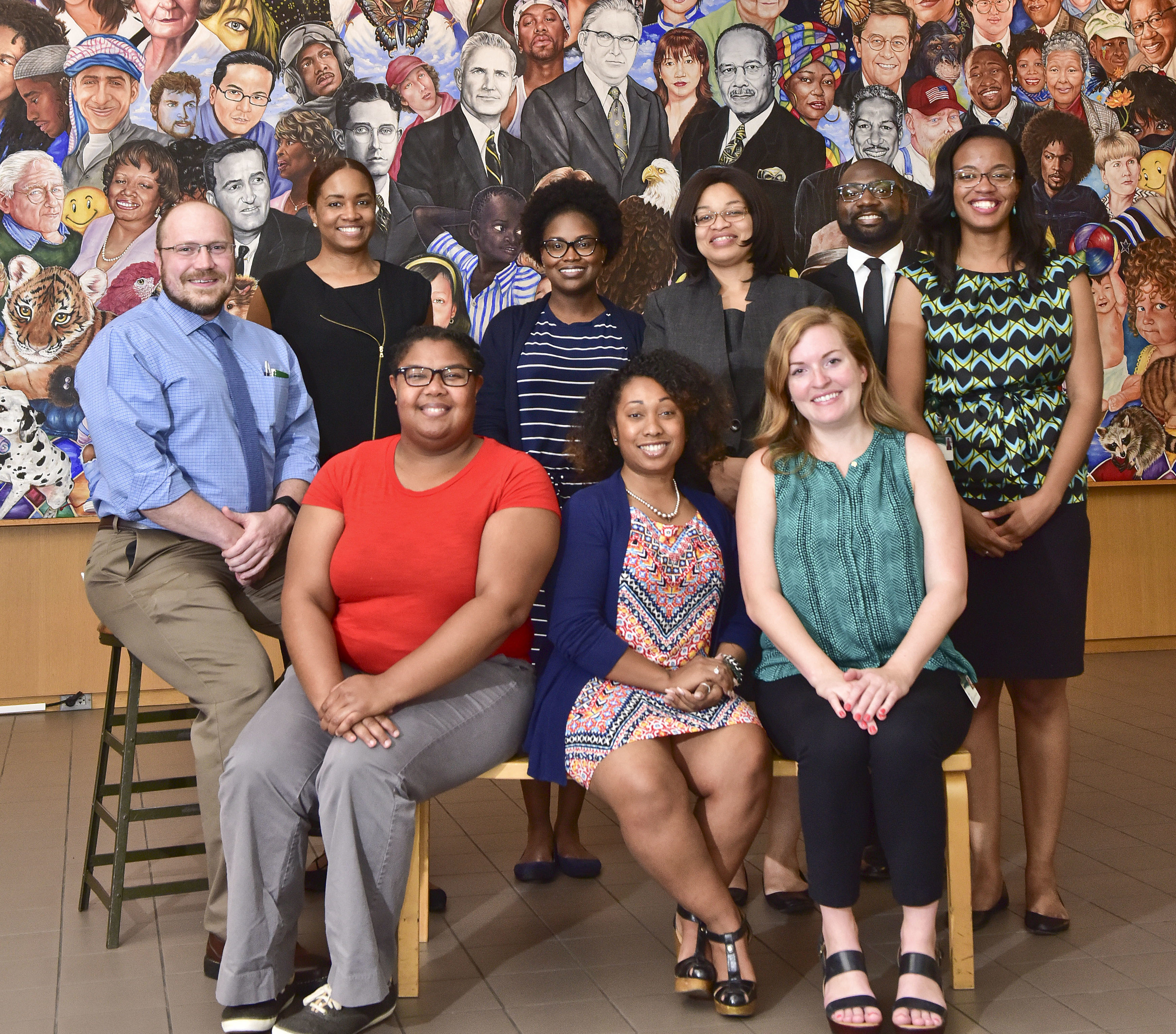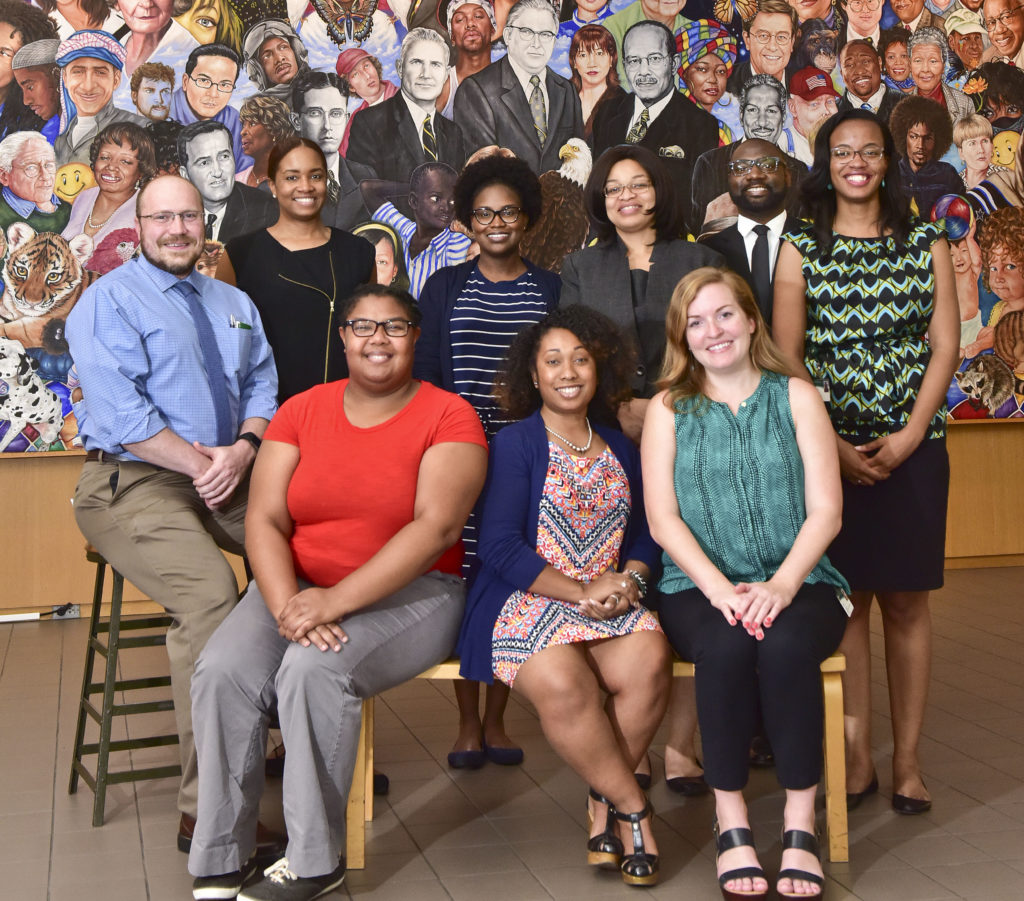
By Ariel Worthy
The Birmingham Times

A major shift is underway at one of Birmingham’s oldest cultural institutions, and it’s being driven mostly by a group of young professionals.
The Birmingham Public Library Young Professionals (BPLYP) aims to bring millennials and a newer generation back to the library. The group is currently preparing for its upcoming Eat Drink Read Write Festival (Oct. 1–7, 2016), which is designed to make adventurous food available and provide “great culinary experiences.”
That event is a small part of a larger movement happening in the Magic City. Millennials and young professionals are not only coming back to the library—they are coming back to Birmingham.
The Birmingham Business Alliance points out two stats that illustrate the growth of young professionals in the city: Downtown Birmingham projects currently under construction or recently completed (in the last two years) represent approximately $1 billion in investment; and, according to the U.S. Census Bureau, between 2010 and 2015 Birmingham’s young professional population (mostly ages 25 to 34 with at least a bachelor’s degree) has increased by 56 percent.
“The demographic is definitely changing,” said Kamonte Kelly, president of the Birmingham Urban League Young Professionals (BULYP). “It’s a swing, and the great thing about that demographic swing is that it’s multicultural.”
According to Deon Gordon, 33, director of business growth at REV Birmingham, “You hear people speak about Birmingham with a sense of pride that’s been missing for a while.”
Joe Brown, 29, co-owner of Birmingham’s upper-echelon sneaker consignment shop Laced Up Boutique said, “Millennials are changing the city for the better. We are diversifying it. The artistry and creative scene is alive. Most of our clientele are on the creative tip, and we’re all connecting and networking together.”
Kelly, 39, said he has seen a lot of young professionals in position to take on leadership roles and have their voices heard now.
“Young professionals now have a seat at the table,” he said.
Adapting to the Times
Last week a diverse group of 15 young professionals met at a Birmingham Public Library Young Professionals (BPLYP) board meeting on the fourth floor of the downtown library. The group is open for anyone from ages 25–40 and attendees sat around a table chatting like old friends who hadn’t seen each other in a while, as they ate snacks and sipped beer and wine set up on a side table. Definitely not your typical library meeting.
Leah Bigbee, 28, president of the BPLYP, said the library, one of the city’s oldest cultural institutions, is more than a place where people can check out books and DVDs. It has, indeed, has adapted to the times.
The library is a gathering site that provides Wi-Fi, as well as space for meetings about startups and other ventures, according to Bigbee. It also has adopted a new mission: to get young people more engaged in the library and to show why it is an important resource.
Support comes from members who pay annual dues that help fund the library.
“We also must commit to at least 10 volunteer hours, but many of the members exceed that,” Bigbee said.
New Appeal
Kelly feels millennials and young professionals are coming to the city because Birmingham is finally catching up to the changing times.
“It started declining in the ’90s, and now we’re back on the map,” he said. “We’re catching up with technology, we’re catching up with some of the midsize cities, like Charlotte and Memphis. That’s what’s appealing to young professionals.”
Another appealing aspect of Birmingham is the opening of pubs and breweries, as well as the emphasis on the city’s parks, Kelly said.
“If you don’t have anything to do outside of work, there is less desire to move here,” he said. “Now with all of the new places and parks, Birmingham is offering work-life balance now.”
Many millennials and young professionals also are getting involved with the community, according to Kelly: “We don’t sit back and create what I call Amen Corners, saying what someone else needs to do.”
A Certain Boldness
Marcus Carson, 31, saw a need in the Magic City and decided to fill it. As the founder and executive director of Growing Kings, a nonprofit that works with underserved young males, Carson considers himself a risk-taker like others of his generation.
“When you think about it, what do we have to lose?” he said. “We either have to fit into the mold created by our parents and grandparents, hope we can make enough money to find a decent place to stay, or create our own lane and see that it may require not living a certain way. We might not want to build a house and build a lot of wealth.”
Victoria Hollis, program director at the Birmingham Education Foundation, says pre-millennial generations helped carve the path for her generation to take care of the city.
“Young professionals have taken up the charge,” said Hollis, who has lived in Birmingham for four years.
Born in New York, Hollis, 31, lived in Louisville, Ky., and moved to the Magic City after attending Auburn University.
“Most of my friends are on junior boards, and a lot of them are in the nonprofit space,” she says. “They’re engaging in work that contributes to Birmingham. Young professionals certainly contribute time and energy into making Birmingham a great place to live.”
Getting Things Done
Birmingham City Council President Johnathan Austin, 37, said young professionals are trying to solve problems differently than previous generations. “We are not hampered by past experiences,” he said. “We are not afraid to fail. We choose to stay [in Birmingham] and reinvest in our community because we have ideas that are working. As we get more civically involved, our communities will change.”
Being the youngest person on the city council has its challenges, but it has advantages, as well, Austin said. That includes making tough decisions, such as a proposed minimum-wage increase.
“Although they (the Alabama Legislature) blocked us, it was important,” Austin said. “No one has ever done that. These issues are important … we can’t keep doing the same thing that we’ve been doing and expecting different results. That’s the definition of insanity.”
Austin believes Birmingham has an opportunity to go in one of two directions: “We can either continue with what we’ve been doing and see minimal changes, or we can take the bull by the horns and force the change that we know needs to happen in our neighborhoods. I opt for the latter.”
Building the City
Through his work with REV Birmingham, an economic development organization focused on stimulating business growth and improving the quality of life in the Magic City, Gordon is helping to make the city more appealing to young professionals and others. One program, CO.STARTERS, allows businesses to fill vacant spaces, many of which are in Woodlawn, East Lake, downtown Birmingham, and downtown Ensley.
“We’re all about giving our entrepreneurs a clear pathway from idea to development,” he said.
One establishment that participated in the program is Eugene’s Hot Chicken. After going through the program and process, Eugene’s will now open a restaurant in the Uptown district.
“We break the business development process down into small chunks instead of taking giant steps,” Gordon said.
Another way REV has encouraged young professionals to return to and stay in the Magic City is with programs like the Zyp Bike Share program and their support for Uber to come to Birmingham, which set expectations for the city, Gordon said.
“When people get in Birmingham from a flight, they should be able to pull out their phone and get an Uber with no problem,” he said.
Birmingham also is the only city that has battery-operated bikes for its bike-share program, which makes sense because Birmingham is a hilly area, Gordon said.
The Magic City is also more welcoming in other ways, he said.
“A small project like the color tunnel, for instance, is a simple gesture, but it creates a welcoming effect,” Gordon said.
The color tunnel transformed the dark, uninviting 18th Street underpass into a rainbow-lit tunnel that has brightened part of downtown Birmingham.
“A few years ago it was a psychological and physical barrier. No one wanted to go through it. You used to see people warming themselves next to fires in barrels,” said Gordon. “Now you see people stopping to take photos under it. It’s simple things that are making Birmingham a better, more welcoming place for people.”
That transformation is symbolic of the many other changes in the city, as millennials and young professionals make their respective groups attractive to younger residents. The upcoming Eat Drink Read Write Festival is another example of Birmingham’s continuing transformation.
“Times have changed with technology, and you have to be willing to change with the trends,” said James Sullivan, 33, former president and current member of the BPLYP. “People are looking for cool things to do, whether it’s Art Walk, Art Crawl, Breakin’ Bread, Trucks by the Tracks. All types of things are going on in the downtown area. We have to find out a way to jump on board with that.”



